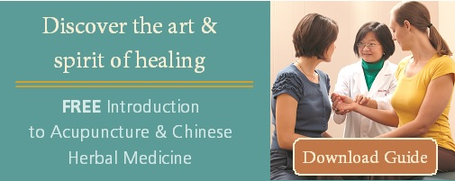
AOMA is well-known in its field for attracting a highly diverse student body consisting of gifted practitioners with a wide variety of backgrounds under their belts. Many students come into their studies having already obtained a background in a particular healing modality or healthcare field.
Many students at AOMA studied Western medicine in nursing school and obtained a strong background in nursing before they decided to advance their careers with Chinese medicine studies. We interviewed them to share their knowledge and stories around returning to school after receiving a nursing education, as well as their thoughts around combining the two very complementary modalities.Nurse/Acupuncturist in Training: Natalie Ledbetter
What prompted you to return to school?
I have been very interested in alternative medicine for years and have been wanting to gain education and training in other modalities of healing. My children are older now, and I thought it was a good time to go back to school now that they are more self-sufficient.
Why did you choose AOMA?
AOMA is a highly ranked and highly respected school for TCM. They are accredited, and I was impressed with the herbal program as well as the other classes offered.
What is your nursing background?
I taught nursing school at Galveston College, worked in ICU, obtained a master’s degree in administration, and then a master’s in nursing anesthesia. I currently work as a certified registered nurse anesthetist at the office of a local plastic surgeon, providing anesthesia for her patients undergoing surgery.
How has your background in nursing impacted your experience as a student/practitioner of Chinese medicine?
In some ways I think it has made things a little more challenging, but it has made it easier in other ways. I had a difficult time at first with the concept of "organs" in TCM and how different it is from Western medicine. I often thought I was memorizing "facts" that were not really facts at all, but odd theories. I decided to suspend judgment and just learn all that the instructors had to offer and sort it all out in the end. This has been working well for me so far.
The fact that I am familiar with anatomy, physiology, physical assessment, and other biomedical subjects has allowed me to skip the biomedical courses, which gives me time to continue working. This is a huge plus, because I refuse to take out loans to pay for school.
What has your experience been like as a student of Chinese medicine?
I love most of the instructors and others who work at AOMA. I am learning so much. It can be hard to balance school, work, and family, but I believe it will be worth it. If AOMA would offer some of the courses online, it would make things so much easier to juggle.
What advice do you have for other nurses returning to school?
Be ready to learn things that are very different from what you have been taught in the past. Be ready to be challenged in the area of time management if you are going to work while in school. Give yourself permission to be less than perfect as you juggle job, studies, home, family, etc.
Nurse/Acupuncturist in Training: Jason Spees
What prompted you to return to school?
I returned to school to shift my life practice of helping others into a more holistic direction.
Why did you choose AOMA?
There were many factors, some of them more logistical, like family, a great job market, and that AOMA is in a counter-culture-strong city. The main thing that drew me to Austin was how strong AOMA is into integrative medicine, how they are research-driven, with several experienced teachers, and aligned with other healthcare disciplines. I believe every facet in healthcare needs to engage with the others in a harmonious and collaborative way to bring about the best results for the patient.
What is your nursing background?
Emergency medicine, chronic pain/rehab, and hospice/palliative care.
How has your background in nursing impacted your experience as a student/practitioner of Chinese medicine?
It helped to already have strong assessment skills and be informed on pathology and pharmacology. That is something that people who are just entering patient care struggle with in the beginning. It has been a challenge to start seeing medicine from the Chinese theory angle, but now I am a lot more empowered, being able to view disease in two or three different ways according to theory. It is like looking at different surfaces of a gem. I find that people are also uncomfortable speaking with acupuncturists if they don't have Western medical experience. For me, that is something to worry less about.
What has your experience been like as a student of Chinese medicine?
I have had a great experience. There are great teachers here, and AOMA is very supportive and full of a lot of good people.
What advice do you have for other nurses returning to school?
Jump on board! Keep up your nursing skills, and see how you can keep helping people, but in an expanded way.
Nurse & Licensed Acupuncturist: Katie Burke
What prompted you to return to school?
I have always enjoyed helping others and have been particularly drawn to assisting in the healing process and gaining optimal health. While nursing has been a wonderfully rewarding career in many ways, working within the confines of the hospital setting and having only medical interventions and pharmaceuticals as my ways of treatment were not completely fulfilling for me. I knew there was a more natural way to heal (and prevent illness). The feeling that something was missing prompted my path to delving into natural medicine.
Why did you choose AOMA?
Since I was already living in Austin and wanting to continue my work part-time as a nurse while going to school, I knew I wanted to choose a school in Austin, if possible. After doing some research I was delighted to find out that there were two acupuncture schools here. I have an acquaintance who was going to an acupuncture school, so once I had set my sights on a career change I talked with her about her experience. She told me she was going to AOMA, and she had nothing but positive things to say about the school. After that, I set up a tour of the campus with the director of admissions. After learning more about the program, I knew that AOMA was where I needed to be. I immediately felt like I was in the right place. Call it a hunch. And of course the school's outstanding reputation in the field didn't hurt, either.
What is your nursing background?
I graduated with my bachelor's in nursing from the University of Texas at Austin in December 2006. I started out working full time in Labor and Delivery prior to going back to school at AOMA. Once I started classes, I continued to work, but on a part-time level. Today I am still working at the hospital (but less frequently), in addition to my work as an acupuncturist.
How has your background in nursing impacted your experience as a student/practitioner of Chinese medicine?
Having a nursing background had been extremely helpful when going through the program. You start off with a base knowledge of anatomy and physiology, disease processes/medical conditions, and pharmaceuticals before you even begin classes. Some of my bio-med classes also transferred, and I was able to get credit for them, which helped in lightening the course load and the financial burden of grad school. Aside from that, nursing helps you develop your interpersonal and diagnostic skills and gives you a leg up once you start treating patients in the student clinic. Now that I'm practicing, my clients are always interested in my work as a nurse and how I integrate both medical models. Being a nurse makes you a ‘familiar’ person in the eyes of people who are new to Chinese medicine. I have personally witnessed it reduce anxiety and increase receptiveness in clients once they realize that I also have a Western medicine background.
What has your experience been like as a student and alumna?
As a student I was probably a bit frazzled while going through the program (as were many of my classmates, I'm sure). Working part time while taking a full load of classes was hard, but I'm glad I continued my work in nursing while going back to school. The program at AOMA is rigorous but rewarding. As an alumna I have been fortunate in many ways. Continuing my work in the hospital allowed me to have a "career cushion" during the transition phase after graduation. I was able to have an income while determining what my next step would be (which was truly a blessing). I am now happily practicing acupuncture at a clinic in Austin that specializes in fertility. I’m working with a wonderful team of skilled practitioners. I am also continuing my work in Labor and Delivery a few days a week.
What advice do you have for other nurses returning to school?
If natural medicine is something that interests you, then AOMA is a great place to find what you've been missing. Western medicine and Chinese medicine go hand in hand. It's wonderful being able to practice and have a solid knowledge base in both fields.

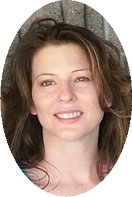
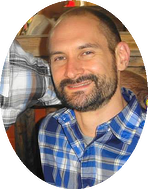
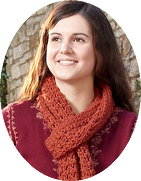

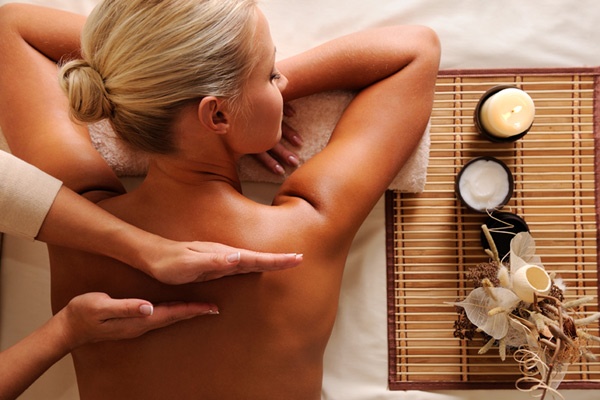
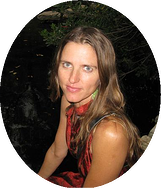


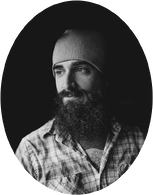
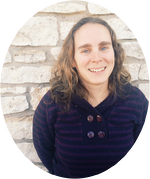


 AOMA alumna, Diane Lowry happily resides in Glen Allen, VA where she is the owner and Licensed Acupuncturist of HealthFocus Acupuncture and Oriental Medicine. She holds Diplomate status in both Oriental Medicine and Asian Bodywork Therapy from the National Certification Commission for Acupuncture and Oriental Medicine (NCCAOM) and is an American Organization for Bodywork Therapies of Asia (AOBTA)-Certified Practitioner.
AOMA alumna, Diane Lowry happily resides in Glen Allen, VA where she is the owner and Licensed Acupuncturist of HealthFocus Acupuncture and Oriental Medicine. She holds Diplomate status in both Oriental Medicine and Asian Bodywork Therapy from the National Certification Commission for Acupuncture and Oriental Medicine (NCCAOM) and is an American Organization for Bodywork Therapies of Asia (AOBTA)-Certified Practitioner. 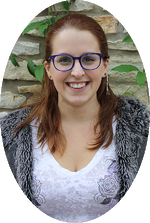 About Jessica:
About Jessica:
 Christina Korpik, Class of 2015
Christina Korpik, Class of 2015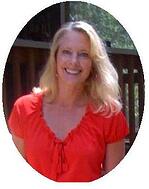 Diana Slivinski, Class of 2014
Diana Slivinski, Class of 2014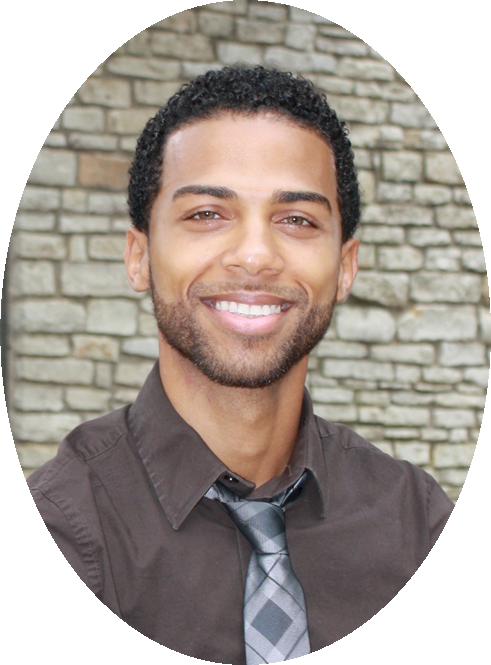 Loubriel Sosa, Class of 2014
Loubriel Sosa, Class of 2014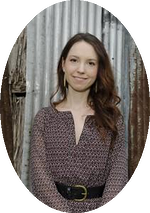 Abigail Karp, Class of 2013
Abigail Karp, Class of 2013 Michael Callaghan, Class of 2017
Michael Callaghan, Class of 2017 Elizabeth Arris, Class of 2015
Elizabeth Arris, Class of 2015
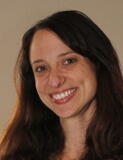 “My choice to pursue my doctorate at AOMA is an easy one because my experience at AOMA (in the master’s program) went beyond all my expectations. The professors and clinic supervisors were outstanding professionals, approachable and eager to support my learning. When the program was over, I felt very well prepared to begin my practice. I have nothing but enthusiasm about returning.” – Debbie Vaughn
“My choice to pursue my doctorate at AOMA is an easy one because my experience at AOMA (in the master’s program) went beyond all my expectations. The professors and clinic supervisors were outstanding professionals, approachable and eager to support my learning. When the program was over, I felt very well prepared to begin my practice. I have nothing but enthusiasm about returning.” – Debbie Vaughn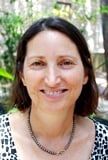 “The AOMA doctoral program on pain care and the psychosocial world offers an exploration of what it means to be human, and that interests me. Pain as a locus of inquiry and a portal into human consciousness is simply brilliant. Pain is a pivot point for people, one that is difficult to ignore and a primary reason for visiting a Chinese medical practitioner.” – Pamela Gregg Flax
“The AOMA doctoral program on pain care and the psychosocial world offers an exploration of what it means to be human, and that interests me. Pain as a locus of inquiry and a portal into human consciousness is simply brilliant. Pain is a pivot point for people, one that is difficult to ignore and a primary reason for visiting a Chinese medical practitioner.” – Pamela Gregg Flax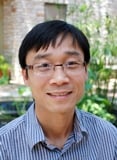 “When my patients entrust their health to my knowledge, I believe that it is my responsibility to continue learning and become the best that I can. Initially, I chose AOMA because I had heard of Dr. William Morris, his profound knowledge in TCM and pulse-taking techniques, and his dedication to the TCM field. After finishing two terms at AOMA, I realized that all of the faculty here are also the best in their specialties. This is rare to find. The guest lecturers are also the best in their field and are willing to share their knowledge and success. Not only is TCM taught more in-depth, but biomedicine and research methods are also emphasized. Moreover, AOMA has the affiliation with hospitals and other major universities where I will be able to learn an integrative approach to healthcare and get access to the tools needed for my research.” - Thang Quoc Bui
“When my patients entrust their health to my knowledge, I believe that it is my responsibility to continue learning and become the best that I can. Initially, I chose AOMA because I had heard of Dr. William Morris, his profound knowledge in TCM and pulse-taking techniques, and his dedication to the TCM field. After finishing two terms at AOMA, I realized that all of the faculty here are also the best in their specialties. This is rare to find. The guest lecturers are also the best in their field and are willing to share their knowledge and success. Not only is TCM taught more in-depth, but biomedicine and research methods are also emphasized. Moreover, AOMA has the affiliation with hospitals and other major universities where I will be able to learn an integrative approach to healthcare and get access to the tools needed for my research.” - Thang Quoc Bui 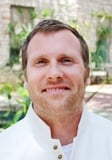 “It is now time to move forward and forge new dreams, to build on what I know and journey into what I do not. We need innovative thinkers and healthcare providers to create explainable models describing the mechanisms behind the tools that we use.” - James Phillips
“It is now time to move forward and forge new dreams, to build on what I know and journey into what I do not. We need innovative thinkers and healthcare providers to create explainable models describing the mechanisms behind the tools that we use.” - James Phillips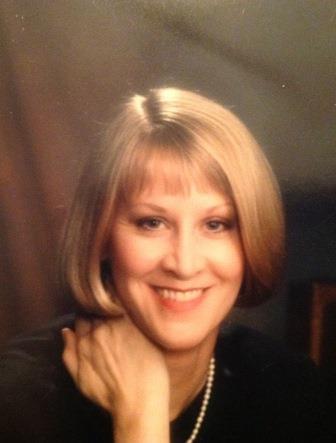 “After 10 years of private practice, I am ready to prepare myself for teaching. The philosophy and structure of the doctoral program at AOMA will further my skills and knowledge to prepare me for teaching in a master’s level program in Oriental medicine, so that new students understand the foundations of Oriental medicine. I think a doctoral level education is necessary to offer this level of teaching.” – Donna Guthery
“After 10 years of private practice, I am ready to prepare myself for teaching. The philosophy and structure of the doctoral program at AOMA will further my skills and knowledge to prepare me for teaching in a master’s level program in Oriental medicine, so that new students understand the foundations of Oriental medicine. I think a doctoral level education is necessary to offer this level of teaching.” – Donna Guthery


 2. Flexibility
2. Flexibility 


 About Kate Wetzel:
About Kate Wetzel:
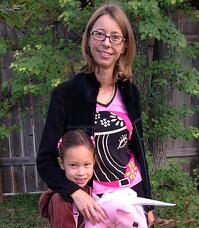 Isabelle Chen-Angliker, a pediatrician from Switzerland, was never fully satisfied with the Western medical approach. She did not agree with the method of funneling patients into an increasingly sub-specialized medical system. She was concerned with the discrepancy of more sophisticated diagnostics vs. the lack of treatment options that are both minimally invasive and without significant side effects.
Isabelle Chen-Angliker, a pediatrician from Switzerland, was never fully satisfied with the Western medical approach. She did not agree with the method of funneling patients into an increasingly sub-specialized medical system. She was concerned with the discrepancy of more sophisticated diagnostics vs. the lack of treatment options that are both minimally invasive and without significant side effects. 
